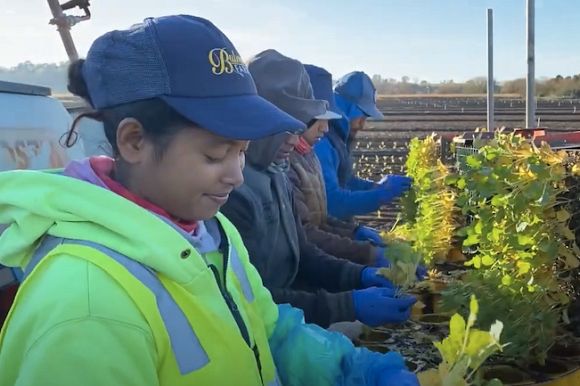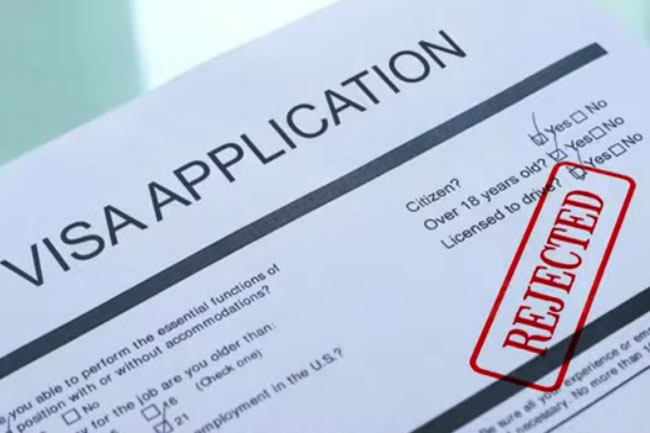A recent article addressing the backlog in refugee cases contains misleading information and does little to offer solutions to problems in our migration system, writes Dr Abul Rizvi.
ASHER HIRSCH from the Refugee Council of Australia (RCOA) and Daniel Ghezelbash from the Kaldor Centre of the University of NSW, writing in Asylum Insight, continue the tradition of asylum advocates misleading Australians on both the biggest labour trafficking scam abusing the asylum system in Australia’s history but also on the enormous challenges in how this should be addressed.
Hirsch and Ghezelbash say of the unprecedented 96,371 asylum seekers in Australia at end October 2022, ‘67,700 people are waiting for decisions on their status and only 28,700 are still in Australia not appealing a visa refusal’. This statement is designed to create the impression that a large portion of the 67,700 asylum seekers will secure a protection visa and that having 28,700 unsuccessful asylum seekers living for many years in the community without work rights and with little prospect of getting home is somehow not unusual and nothing to worry about.
Both suggestions are preposterous. At refusal rates which have been remarkably stable since the labour trafficking scam escalated in 2014-15, the vast majority of the 67,700 asylum applications have either already been refused at the primary stage and/or will be refused at the Administrative Appeals Tribunal (AAT).
Hirsch and Ghezelbash would know that the source country composition of the 67,700 and that of new applications currently being received is such that there will be no change in the very high refusal rate. While asylum seekers to Australia have traditionally had a very low refusal rate, this was turned on its head when the labour trafficking scam escalated from 2014-15.
Hirsch and Ghezelbash also fail to mention that monthly asylum application rates since international borders re-opened have increased from a low of 600 per month to over 1,400 per month in October 2022. The monthly application rate will continue to rise until the Government takes significant action noting that no Australian government has ever encountered such huge numbers of unsuccessful asylum seekers. The vast majority of these new asylum seekers are also being refused but are not going home.
The solution to this situation, Hirsch and Ghezelbash offer, is a massive increase in funding for Home Affairs and the AAT to process the visas and, of course, lots more taxpayer funding for their fellow asylum lawyers. While additional funding for faster processing will indeed be part of the solution, the casual way Hirsch and Ghezelbash assume the Government will be happy to throw hundreds of millions more taxpayer dollars at this problem shows a breathtaking level of naivety.
In the May 2023 Budget, Ministers Clare O’Neil and Andrew Giles will already be asking their colleagues to agree to a fortune in additional funding to fix the wider visa system that will be recommended by the Parkinson review of the migration system and for pathways to permanent residence for the legacy boat caseload of around 31,000. Asking for even more money to fix the asylum system for people arriving by air would be a huge ask.
But what is most extraordinary is that Hirsch and Ghezelbash say nothing at all about their own figure of 28,700 unsuccessful asylum seekers living in the community. Australia has never experienced anything like this level of unsuccessful asylum seekers living in the community. Hirsch and Ghezelbash would know that and that this number will inexorably continue to grow to a much larger number as applications continue to be processed and refused at current refusal rates.
In an article Ghezelbash wrote many years ago when he again tried to dismiss the problem, he suggested the Government should be quickly removing refused asylum seekers. While that is possible if the number refused is small, it is impossible once the number of refused asylum seekers runs into the many 10,000s — especially if they have been living in the community long-term.
While locating, detaining and removing unsuccessful asylum seekers should never cost as much as the costs incurred in the Government’s unsuccessful attempts to remove the Biloela family, no one should assume the cost of removing tens of thousands of other unsuccessful asylum seekers would be cheap.
In recent years, around 30 unsuccessful asylum seekers are being removed every month voluntarily and around one per month involuntarily. The cost of increasing this to locate, detain and remove tens of thousands of refused asylum seekers would be eye-watering and politically impossible.
The existence of a very large and rapidly growing number of refused asylum seekers living in the community with no rights and being highly vulnerable to exploitation is merely inconvenient for asylum advocates. But for the individuals involved who are mostly being exploited by criminal organisers and for the future of Australian society, particularly around farms, the implications are significant
Opposition Leader Peter Dutton allowed the current situation to emerge from 2014-15 because he did nothing about it. Given the issue emerged under his watch, he preferred that no one else talked about this situation, either. He and other ministers (as well as Greens politicians) were dismissive when former Shadow Home Affairs spokesperson Kristina Keneally raised the issue a few years ago.
Like Dutton, asylum advocates would also prefer no one talk about the massive number of refused asylum seekers and the fact this is largely being driven by criminal organisers who are part of the second biggest criminal enterprise on the planet — labour trafficking.
Dr Abul Rizvi is an Independent Australia columnist and a former Deputy Secretary of the Department of Immigration. You can follow Abul on Twitter @RizviAbul.
Related Articles
- Net movement of visitor visa holders highlights Home Affairs hitch
- October figures reveal rapid rise in international travel
- Skill stream under Labor's Migration Program hits historical high
- Dutton pouts after Albo delivers on Migration Program
- System fails to protect migrants — asylum applications soar
 This work is licensed under a Creative Commons Attribution-NonCommercial-NoDerivs 3.0 Australia License
This work is licensed under a Creative Commons Attribution-NonCommercial-NoDerivs 3.0 Australia License
Support independent journalism Subscribe to IA.














